Better Nutrition for MS: A Plant-based Diet is Best.

Whether I’m teaching or seeing patients in clinic, I’m often asked, “There are so many MS diets. Which one is right for me?”
You may be wondering the same. The reason for this confusion is that our “big agriculture” food system and the diet industry send us mixed messages. Our supermarkets are lined with artificial products posing as real food. And many gurus proclaim their method is the best (and often only) diet to follow. No wonder the average person can’t figure out what to eat for dinner!
You shouldn’t have to get a nutrition degree to learn how to eat healthy, so I want to make things simple for you. In short, the answer to what is the best diet for MS is simple: all the data points to a whole-food, plant-based diet. Operating under these general principles of good nutrition, you really can’t go wrong, whether you have MS or any other diagnosis.
Misconceptions about the plant-based diet
Before we go any further, I want to call out some of the comments I hear every time I recommend a “whole-food, plant-based diet”:
- People immediately conclude that they have to become a vegetarian or vegan.
- People revolt at the word “diet,” assuming that it’s punitive and they have to give up EVERYTHING they love.
- They assume they have to eat perfectly 100% of the time.
None of these are true!

I invite you to open your heart and mind to a different relationship with food. Rather than choosing sugary, processed foods laden with unhealthy fats and artificial ingredients providing a quick reward followed by subsequent crash, consider what the simplicity of a whole-food, plant-based diet can do for you.
Improve MS symptoms with diet
Now that you’re acquainted with what a whole-food, plant-based diet is and isn’t, are you ready to shift your perspective on how THIS diet can benefit MS symptoms?
Common observations amongst those eating a whole-food, plant-based diet include:

A new spin on the word “diet”
I often tell my patients and TRUE Medicine participants as we begin our journey together to think of the word “diet” not as a punitive, restrictive measure but instead as a plan you create for yourself as part of your dedication to making smart food choices that connect you with your health goals.
As you learn more about good nutrition and the benefits of a whole-food, plant-based diet, YOUR job will be to experiment within these general guidelines and discover the specifics that best suit you. In doing so, you would take into consideration your personal preferences and tastes, access to available foods, budget, cultural influences, etc.
Eating a whole-food, plant-based diet can provide a number of benefits, some of which we shared above. Other benefits that are especially useful for those of us with MS include:
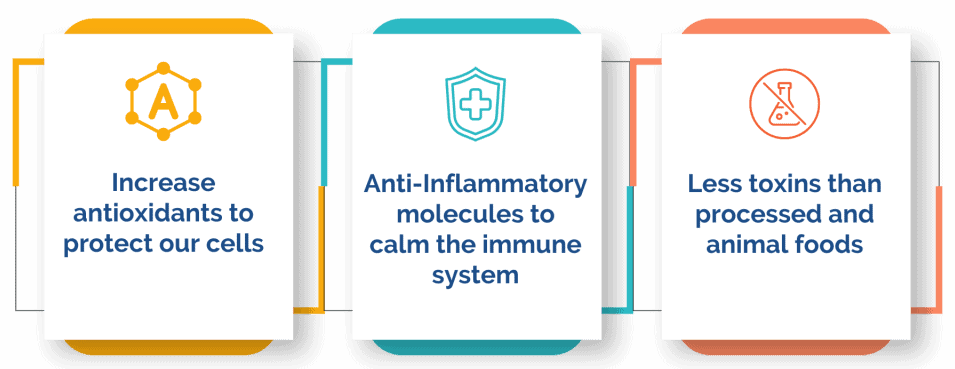
A plant-based diet, deconstructed
As I mentioned earlier, it is untrue that to eat a whole-food, plant-based diet you must give up your yogurt or chicken salad and become a full-blown vegetarian or vegan. Let’s take a closer look at what these words actually mean.
Whole foods are unprocessed and unrefined, as we might find them growing in nature. Visualize what you may see at a farmer’s market: heaps of colorful vegetables and fruits without nutrition labels or ingredient lists. (Funny how ONLY processed foods have “nutrition” labels, right?)
Plant-based means the majority of the food you eat comes from plants. This does not mean all your food! If at least 80% of the real estate of your plate is covered with plants, that’s a plant-based meal! And don’t forget that plant-based ingredients extend beyond vegetables and fruits to include nuts, beans, seeds, herbs, spices, and even small amounts of whole grains.
You may be wondering what goes on the other 20% of your plate. This is reserved for any animal products that you may choose to eat. Keep in mind, if you want to stay in line with a plant-based diet, aim to have no more than 20% of the surface area on your plate devoted to animal products.
Also important is to remember that whatever amount of animal products you choose to include, a commitment to choosing the highest quality meat, chicken, fish, pork, eggs, and yogurt matters. That means organic, pasture-raised, free-range, humanely raised, etc.
The whole-food, plant-based diet is a great first step if
you are looking for a simple
yet powerful tool to
restore your health and calm the symptoms of MS.
Moving towards a plant-based diet
Remember this: Change doesn’t happen overnight. It takes time to wrap our brains around shopping for different foods, learning new ways of preparing unfamiliar foods, retraining our taste buds, and recalibrating our appetite. So be kind and patient with yourself. Making the commitment to go plant-based is at least half the battle.
In the beginning, stop and take a look at where you are right now, without judgment. Knowing where you started from allows you to appreciate the changes you make over time.
Consider these questions:
- Roughly what percent of your last meal consisted of plants? Is that typical of your usual diet? If the answer is less than 80%, which plant-based foods listed above are you willing to add to the mix? Put it on your shopping list right now.
- Open up your pantry, cupboards, and fridge to look for all the foods that are processed and packaged. Which ones are you willing to let go of and which ones will you keep? It’s up to you to make these decisions.
Healthy eating should leave you feeling nourished, light, and energetic. See your diet as an experiment. Gradually increase the amount of plants on your plate until you hit 80%. See something at the farmer’s market you’ve never eaten? Throw it in your bag and ask your local farmer how to prepare it.
Gaining an awareness of your body and senses
As you experiment and try new things, you will gain a new awareness of how your mind and body respond to different foods. This is actually a really important skill because it is real time feedback about what agrees with you and what doesn’t.
To become more body aware, pay close attention to even small shifts in your mood, energy level, mental clarity, pain, sleep quality, bowel habits, and any other symptoms you may be experiencing. Check in with yourself, especially after meals. How did you feel after eating that fast food you grabbed from the drive-thru at lunch? Contrast this with how you felt later, after a colorful, plant-based dinner? For most people, the more they swap in plants and start feeling the benefit of fresh ingredients and fiber, the less they want to opt for processed food.
Remember that every person is unique. Many people crave and need the full 20% of animal-derived foods to keep up their energy, feel satiated, and avoid feeling depleted. Others do great as vegans. It’s up to you to experiment with the ratio of plant to animal products, and let how you feel dictate your decision.
In short, your job is to think about the overarching principles of nutrition as outlined here and pick and choose what works best for you. You are truly the only person that can personalize a diet for yourself.

Getting started
Any shift in diet can sometimes feel like a significant change. The best way to approach it is with an open mind and heart, and the willingness to try and fail. Adjusting to a new diet can take several months, if not years.
It took me about two years to feel like I had created solid habits around eating a whole-food, plant-based diet. So again, be patient with yourself. Over time when you look back, you will hopefully come to see the process as eye-opening – as well as fun – as you observe the often rapid changes in your mind and body that come from giving them the nourishment they need.
There is mounting evidence that a whole-food, plant-based diet supports the overall health and well-being of your mind and body. Participants in past Live Well with MS foundations programs reported noticeable improvements in mood, less anxiety, increased energy, better digestion, and a greater sense of well-being within just WEEKS of making small changes to their diet. This too can be YOU!
Tips to get you started:
Be curious
about new foods
Go out of your way every week to shop for at least one new plant-based food you don’t ordinarily eat.
Learn simple techniques & experiment
Invest time in learning new cooking skills and don’t be afraid to experiment with herbs and spices, which can transform even tofu into something magnificent!
Retain your
taste buds
As you cut down processed foods with intense artificial flavors, you’ll come to appreciate and even prefer the taste of natural foods.
Enlist family
& friends
Working on diet with others is fun and gives you support and accountability. You may even wish to join a program to go deeper and ensure your success.
Change for the better
Changing old habits is NOT easy. But I can say for myself and many of my patients that the impact of eating a diet rich in whole foods and plants has been profound.
I’d love for you to stop right now and imagine what’s possible in the next 6-12 months if you start with just a few simple changes TODAY.
Over time, you can build on those small changes little by little because that’s how real people create real change. I promise you it’ll be worth the effort.
So before you stop reading, what are one or two nutritional changes you can make to impact your health today? I’d love to hear from you in the comments below.
Do you want to deepen your health journey?
Check out our "Live Well with MS" foundations program
Learn the details and get coaching support on implementation
alongside a growth-minded community of people living with MS.
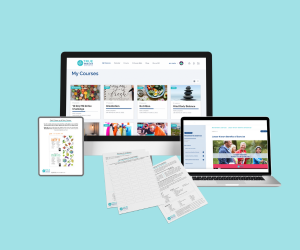
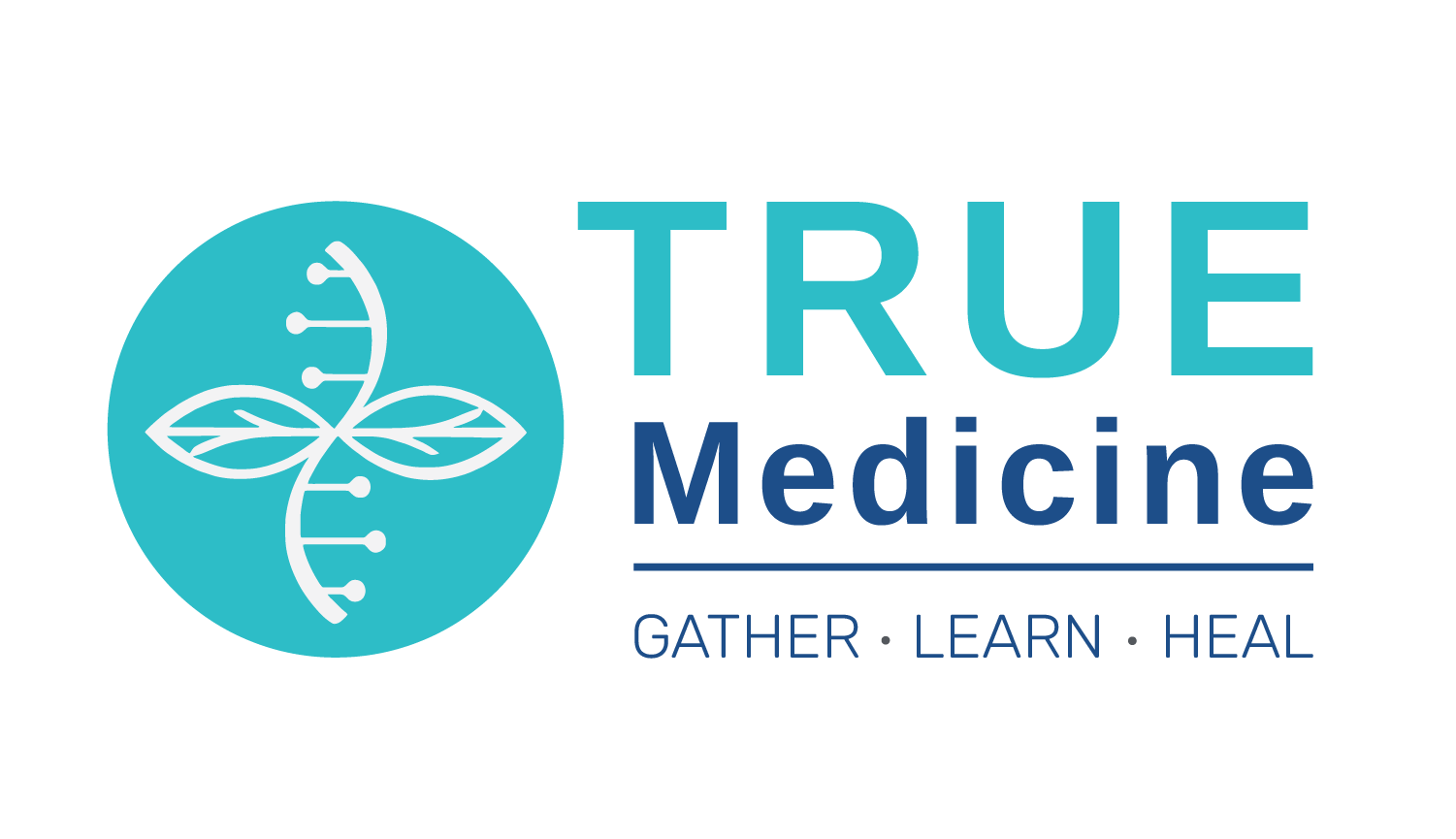
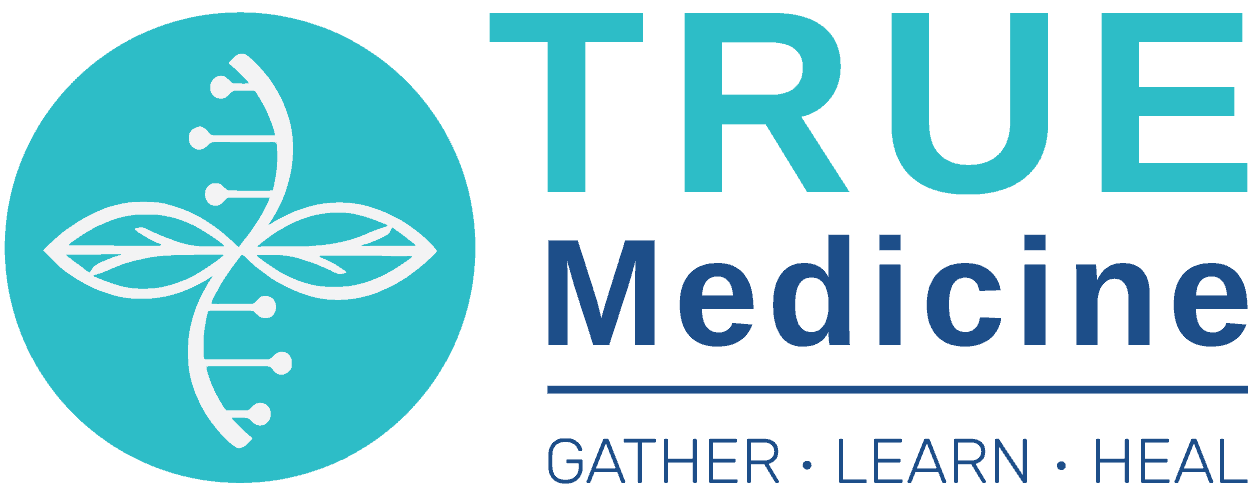
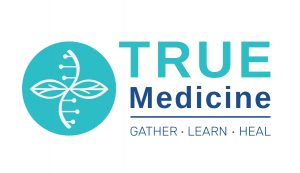
Well done Susan.
Thanks Eli! That means a lot, coming from you who is living proof that food is medicine!